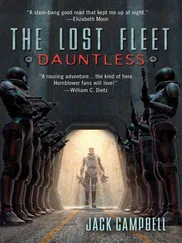“First one belonged to Ratko. The other to one of his associates.”
“Ratko sent himself copies. There’s more. You told me Mulholland got phished. Risly was the phisher. They’ve got three computers on a wireless network. Risly hacked all of them.”
“Ratko’s got—had—a talent for that kind of thing.”
“Yeah, but phishers, as we know, play a percentage game. They phish lots of people, hoping to sucker a few, and they’re looking for stuff they can steal—bank accounts, brokerage accounts, hard assets.”
“So?”
“The only person Risly phished was Mulholland, and it looks like all he stole was information. Then someone took that information from him.”
“How’s that work?”
“Ratko removed a big file from one of Mulholland’s computers. Removed as in removed—stolen, then erased, permanently. No way to retrieve it. He clearly wanted the only copy. Then someone moved that same file, along with another one, to an external drive and erased them from Ratko’s hard drive. Again permanently.”
“No way to tell what they were?”
“Uh-uh. Just two big-ass files, two hundred ninety gig and three hundred fifty gig.”
“That someone was likely Ratko himself.”
“True enough, but where’s the hard drive?”
“Good question. He didn’t have it with him. It wasn’t at the loft or in Chelsea.”
“Anyone know you have his computer?”
“The aforementioned Barsukovs.”
“I’d watch my step, then—a little more carefully than the late Mr. Risly did.”
“I’ll do that.”
“There’s more. E-mail, from Risly’s computer through a zombie to felixmulholland@aol.com. Listen to this. ‘Greetings, Polina Barsukova. We know who you are, who you were, what you did, what you’re trying to do. We know it all. We’re thinking a partnership could be attractive for both of us. You get to keep your income stream—or 50% of it. You get to stay alive. We’ll be the only ones who know who you are, who you’ve become. You can’t find us. But don’t doubt for a second we know exactly where to find you. We’ll be in touch soon. In the meantime, if you don’t believe us, check your computer. You’ll find something missing. We have it now—another reason we think you’ll welcome a partnership.’ No signature, no return address.”
“When did she get that?”
“April eighth.”
“Right after the phishing expedition.”
“That’s right. A week later, she gets another message. Contains a list of bank accounts and instructions for her to transfer money into them. Doesn’t make any mention of amounts, just percentages. Take a look.”
He spun the laptop around. The message read,
Greetings again, Polina Barsukova.
By now, you’ve had a chance to consider our offer of partnership and we’re certain you find it attractive. Here’s what you will do.
Each month, you will receive a list of bank account numbers. On the 10th of the month, you will transfer from the accounts in which you have received payment 50% of those amounts in equal installments to the account numbers we provide.
If you miss a transfer, we will make a call to Brighton Beach. That will cause great pain. If you miss one more, we will make another—to Moscow. You know the price you will pay then.
No margin for error, Polina Barsukova. We trust we understand each other.
Here are the accounts for May:
197663874305-57
170190980928-98
316587686784-96
976223958279-83
737893690837-32
762137263728-53
712635558821-72
863876879297-24
267659876869-66
128763809890-52
I turned the computer back. “Basilisk didn’t show any of this activity.”
He nodded. “I know. I double-checked. But the e-mail refers to ‘the accounts in which you have received payment.’ They could be, probably are, under some other name or names.”
“Ratko seems to know all about whatever arrangement she has in place for whatever she’s up to. When the money’s coming in, where it’s coming in to, and the fact that he doesn’t mention an amount suggests he knows how much. He’s working both sides of this deal. But why?”
He spun the computer back. “Hold the phone. She gets another e-mail, couple weeks ago. Thanks her for the May payments. Gives her the account numbers for June. Then it says, ‘We’re afraid we must make a one-time assessment to cover the partnership start-up costs. Shipping and handling charges. $100,000. This will be a cash payment, small, used bills, please, tens and twenties. You have a week to collect the money. We’ll be in touch with delivery instructions.’”
“Hundred grand? That can’t be coincidental.”
“It’s not. That picture you showed me, the kidnap photo? Photoshopped. Four separate images, the girl, the gun, the Times , and the background.”
“How’d Ratko…”
“He didn’t. It was Photoshopped on Mulholland’s computer. The same computer used to type the kidnap note. Look.”
He banged on the keyboard and turned the laptop around. Four images, as he said—Eva, the newspaper, the hand with the gun, and a chair against a brown wall. Foos reached around to the keyboard.
“Voilà.”
The four images merged into the picture Mulholland had handed me Tuesday morning.
“And here’s your kidnap note.”
He hit a few more keys, and the note appeared on the screen.
“I’m not into judgment,” he said, “but it looks to me like you’ve been taken for a ride.”
I couldn’t argue. “You install the keyboarding bug?”
“Anyone does anything with that computer, you’ve got a front row seat.”
“And no one—especially Lachko Barsukov—is going to know we were in there?”
He raised a bushy black eyebrow, his usual reaction to a question that’s beneath response.
“Sorry,” I said. “We need to erase all this. I have to hand the computer back to the Barsukovs.”
“Already done. You’re looking at the copy I put on this hard drive. Figured you’d want to keep your inadequacies to yourself.” He clicked some keys, pulled out a cable, closed the laptop, and pushed it across the desk.
“One more thing. I got waylaid this morning by a pissed-off U.S. attorney.”
“Uh-oh. He know about your extralegal activities?”
“Fortunately not. But she knows more about me than I like. She also turned down my dinner invitation.”
“Cause and effect?”
“See what the Basilisk can find on her, starting with a home phone. Victoria de Millenuits is her name.”
“Millenuits? Midnight?”
“Close. Mille —thousand, nuits —nights.”
He shrugged. “My dinner invitations are usually accepted. I’ll look into it after lunch. Pig Pen and I have a date at Lombardi’s.”
* * *
I took Ratko’s laptop and Foos’s external drive to my office and woke up my own computer. I plugged in a cable, and an icon for Ratko’s hard drive appeared on my desktop waiting to be invaded. Almost like the good old days.
Not. Still, given that the computer now belonged to the Barsukovs, I enjoyed the irony.
I clicked on the icon, and the hard drive opened up. The home page for something called the Slavic Center for Personal Development appeared. I ignored that and began to work through the contents, starting with the spreadsheets. Two hours later, I was less than a quarter done, and my eyes hurt. I felt like a beer but settled for a glass of water and went back to my desk.
If Bill Gates had a dollar for every line of Excel spreadsheet employed by Ratko Risly, he’d have many more millions than he already does. The computer contained workbook after workbook, each titled with a number and all following the same format—a group of three columns on the left, five on the right, but the right columns contained many, many more entries. The first column in each group appeared to be a date. The earliest started six months ago. The most recent were the ones the computer added by itself this morning. The other columns contained what could be account numbers and dollar amounts, but that was pure guesswork on my part. On the other hand, why keep such elaborate records for anything other than financial transactions? Ratko’s outgoing mail contained messages similar in content—five columns of numbers—but the messages, which numbered dozens per day, went to an array of addresses. Zombies, Foos said. Sleeping computers, left online, hijacked by cyber-pirates for a host of nefarious purposes, usually to send spam blasts or to corral into botnets, but also to cover tracks. Ratko’s BlackBerry received confirming copies of the e-mails issued by Ratko’s computer.
Читать дальше












